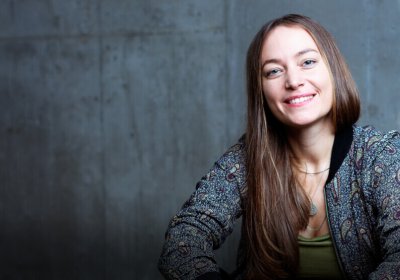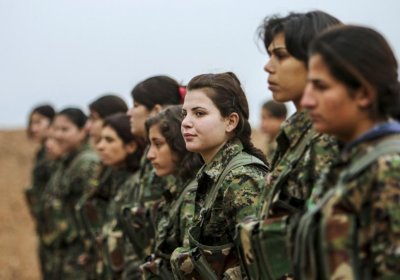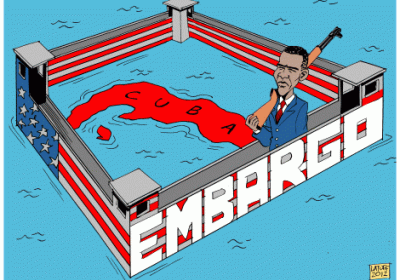A new documentary film, The Other Side Of The River, shows the complexity of the women's revolution in Rojava and its contradictions. Director Antonia Kilian discusses the film.
Kurdish women of Rojava
The Kurdistan Women’s Liberation Movement sent the following message of solidarity to the Women's March for Justice, which mobilised more than 100,000 women and their allies around Australia on March 15.
Northern Syria (also known by its Kurdish name of “Rojava”) has been the scene of a social revolution with women’s liberation at its centre in recent years. However, it has come under constant attack.
Women from the Tirbesipiye-Cizire Canton in northern Syria (known as “Rojava” in Kurdish) held a women-only demonstration through the city centre on February 9.
The marchers expressed their support for the resistance by women and others in the Afrin canton in Rojava against the fascist invasion from Turkey and Islamic gangs, which began last month — and in support of the feminist, multi-ethnic Rojava Revolution.
It was in the autumn of 2014, only months after Islamic State (ISIS) achieved huge territorial gains inside Syria and Iraq, committing genocidal and femicidal massacres, that a revolutionary silver lining arose from the little-known town of Kobane in Syria’s north.
Having overrun Mosul, Tel Afar and Sinjar in Iraq, as well as a vast expanse of territory inside Syria, ISIS prepared to launch an attack on the north of Syria, known by Kurds as Rojava.
What ISIS did not anticipate in Kobane was that it would encounter an enemy of a different kind – an organised, political community that was ready to defend itself courageously by all means necessary, and with a worldview that turns ISIS’s death ideology on its head.
An ISIS attack on May 2 near the Rajim Salibi border crossing between Iraq and Syria left 37 refugees dead and at least 20 injured. Victims were as young as three months. “The attack was repelled [by] the intervention by Syrian Democratic Forces [SDF] fighters,” Firat News Agency reported.
Most of the refugees were fleeing the Iraqi city of Mosul, which for months has been the scene of heavy fighting as Western, Russian, Iranian, Iraqi government forces and allied militias try to retake the city from ISIS.
Among other things, Links International Journal of Socialist Renewal has recently published a wide-ranging interview with Kurdish activist Dilar Dirik on the role of women in the Kurdish struggle, the Rojava revolution unfolding in northern Syria and the rise of the Kurdish-led People’s Democratic Party in Turkey; and a number of new translations in the “1917: The View from the Streets – Leaflets of the Russian Revolution” series being co-ordinated by US historian Barbara Allen and Canadian socialist and Links collaborator John Riddell.
New at LINKS International Journal of Socialist Renewal: Kurdish women struggle for a new society in Rojava and Fidel Castro: 'We don't need anything from the Empire'.







